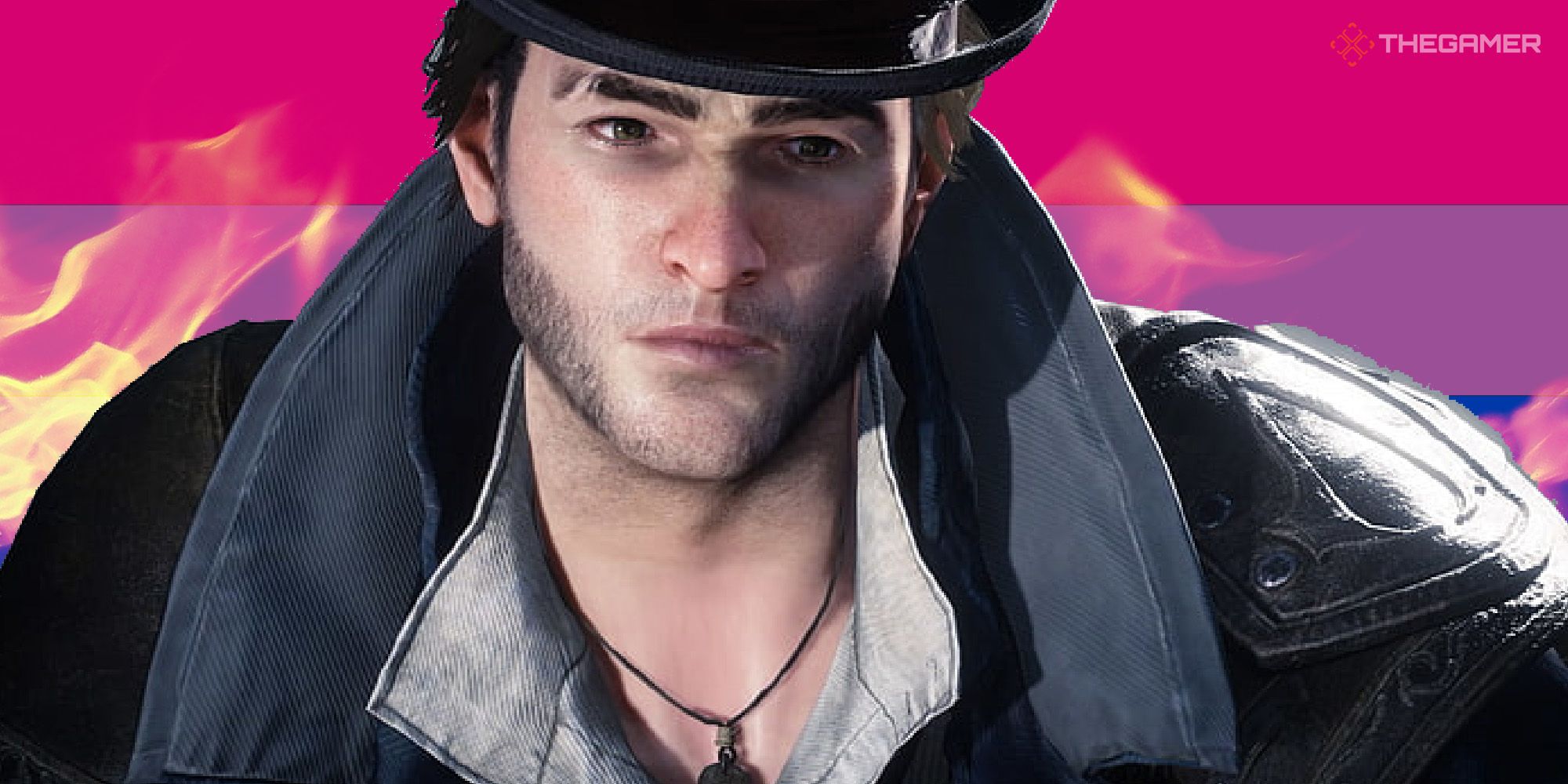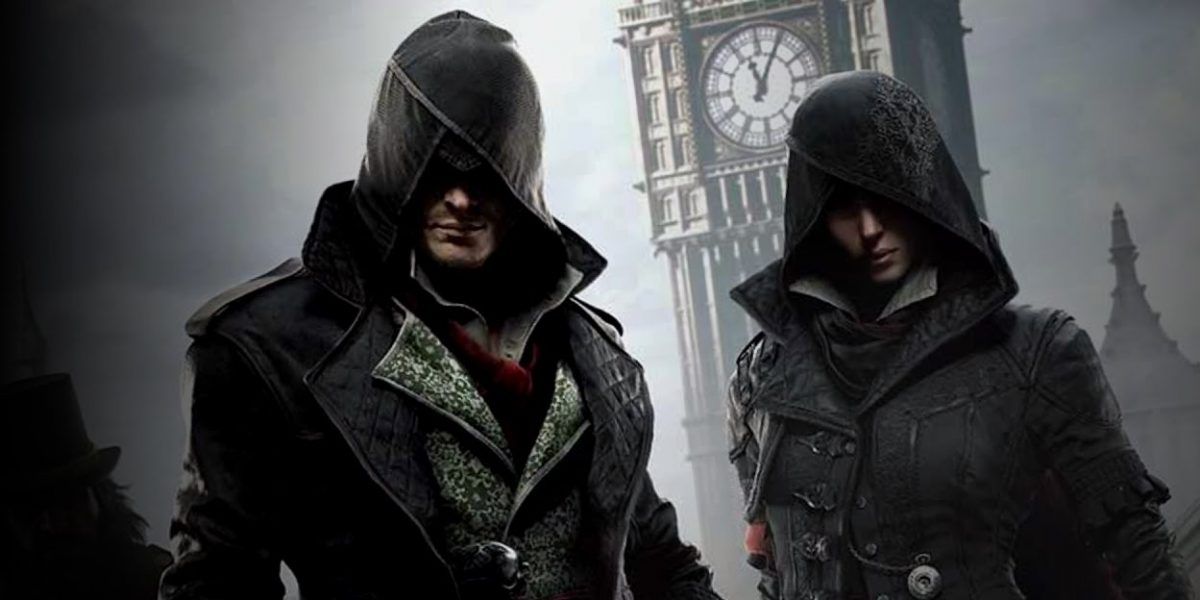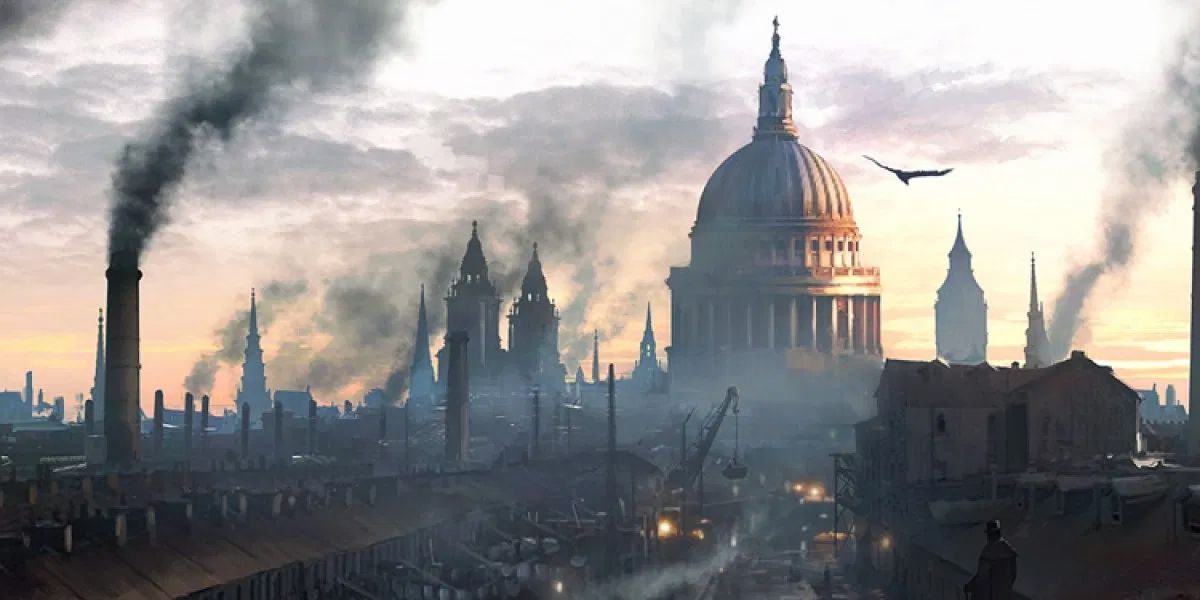Bisexual erasure happens all too often. The lingering stigma of it ‘not being real’ refuses to dissipate. I’ve had plenty of people argue that I’m gay and in denial or straight and just confused, or that being bisexual is, for some reason, little more than a bridge between being hetero- and homosexual. How people have the nerve to tell you they know more about you than you do yourself is beyond me, but it happens. As a matter of fact, it happens a lot. It’s exhausting coming out and defending who you are this much, and yet that’s the unfortunate reality of being bisexual. So when it comes to representation, it’s even more irritating that the term itself is rarely used. It means that identities fester in ambiguity, perpetuating the stereotypical mystification of bisexuality instead of pushing towards acceptance.
Jacob Frye is perhaps the most noteworthy example of this trope in gaming. If you don’t recognise that name, he’s one of two leads in Assassin’s Creed Syndicate, a game that gets a lot of undeserved flak. Despite its reputation, it’s a great entry in the Assassin’s Creed series, and its Victorian-era London setting is a treat to explore - doubly so thanks to its bantering siblings, one of whom is bi. That’s Jacob, by the way. The thing is, most people are still unaware of Jacob’s sexuality because the game fumbles when it comes to expressing it. This goes to show that even a good game with good intentions can often mess up queer storytelling. It’s unlikely that it’s nefarious erasure or that the writers hold ill-intent, but there are a lot of easy-to-avoid pitfalls that drag down LGBTQ+ representation. With Jacob, there was a simple solution - say that he’s bisexual.
This doesn’t mean that he should have to stare blankly at the camera and mutter, “I’m bi” when you meet him. Nobody does that. It’s not natural and it’s jarring. The problem is that Jacob’s bisexuality is expressed in a number of ambiguous ways that are a detriment to his character. He could have been a bisexual protagonist in one of the largest gaming series in the world, but because you have to scour wikis and find quotes from developers to learn as much, it doesn’t really count.
Also, he doesn’t hold any romantic relations with women which was a conscious decision. Maybe he’s busy being an assassin, but to make a character bisexual and never show that bisexuality is a strange choice. It’s problematic on so many levels. It plays into the idea that bisexual men dating women aren’t bisexual. Plus, Jacob hints in-game that he is “figuring himself out” after his partnership with Maxwell Roth. Again, problematic. It’s furthering the idea of bisexuality as confused, as a fleeting dalliance or a brief pit stop on the way to homosexuality.
Had Jacob told somebody - maybe his twin sister, who he is incredibly close with - that he is bisexual, all of this ambiguity would have subsided. But he doesn’t. It can even be said about a character. Somebody could ask about why Jacob is so close with another man for his sister or somebody else to reply, “Oh, he’s bi,” or “He swings both ways.” Anything to clarify Jacob’s sexuality and his ownership of it would work. Instead, it took an official Tumblr account to confirm it. That’s how bisexuals in the 2000s communicated, not the 1860s. The avoidance of the word ‘bisexual’ contributes to Jacob’s erasure, but the other elements making up his identity were equally as problematic. It’s a mess, frankly.
But it’s more than just saying a character is bisexual. It has to be shown, too, otherwise it’s meaningless.
Take Dragon Age: Inquisition’s Iron Bull. They’re a bisexual Qunari who you can romance regardless of gender, yet BioWare, often praised for its queer inclusivity, avoids the term. Krem, Inquisition’s transgender character, is in the same boat. Hades’ Zagreus and Divinity’s Warden are both bisexual characters who avoid the word too. They’re all great representation, but circling around the descriptor contributes to the blotting out of their identities. There are a lot of nuanced and complex intricacies to representing bisexuality without falling into erasure, ambiguity, or playersexuality, and a lot of the confusion could be undercut by simply using the term - and yet writers appear to be afraid to touch it. It’s disappointing, but shifting that mindset could be a gamechanger for representation and visibility, and who knows?



